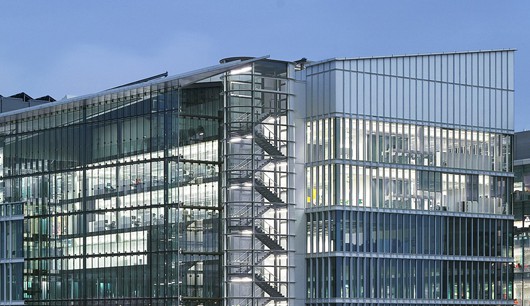
AstraZeneca has reported positive results from a phase Ib clinical trial of MEDI4736 and tremelimumab in lung cancer at ASCO and says it will now take the immuno-oncology combination into pivotal testing.
Meanwhile, Bristol-Myers Squibb has announced strong results for a new combination treatment using its immunotherapies Yervoy (ipilimumab) and the recently approved Opdivo (nivolumab) for melanoma, the deadliest form of skin cancer.
Both treatments use PD-1 therapies, widely believed to be the next generation of oncology drug development, and were the stars of the 2015 ASCO cancer conference in Chicago, US.
The combination of PD-L1 inhibitor MEDI4736 and tremelimumab – a CTLA4 inhibitor – showed clinical activity in patients with advanced non-small cell lung cancer (NSCLC), achieving disease control in 48% of patients.
MEDI4736 and tremelimumab both target mechanisms by which tumour cells evade detection by the immune system and work via a similar mechanism to the combination of Bristol-Myers Squibb’s medicines.
All told, MEDI4736 and tremelimumab achieved a 27% overall response rate in PD-L1-negative patients, which AZ indicated was a good result given that a range of doses was being tested to identify the best regimen to take forward into phase III trials.
AstraZeneca has already decided on the design of the MEDI4736/tremelimumab study in NSCLC, which will be called ARCTIC and focus exclusively in PD-L1-negative patients, who are “in need of better treatments,” according to Ed Bradley, head of oncology at AZ’s Medimmune unit.
The phase III trial for BMS was assessing the US firm’s two treatments as a dual regimen, pitting Opdivo monotherapy against Yervoy in combination with Opdivo in patients with previously untreated advanced melanoma.
The combination therapy improved progression-free survival (PFS) by a median of 11.5 months compared to 6.9 months for Opdivo on its own, with just 2.9 months for Yervoy monotherapy.
The dual therapy regimen demonstrated a 58% reduction in the risk of disease progression versus Yervoy, which was first approved by the FDA in 2011.
Big pharma deals
Meanwhile, Amgen has announced a tie-up with Roche with the two firms’ investigational medicines talimogene laherparepvec and atezolizumab.
This will be the first trial to combine these immunotherapies for triple negative breast cancer and colorectal cancer with liver metastases in a phase Ib trial.
Talimogene laherparepvec is an investigational oncolytic immunotherapy designed to selectively replicate in tumours (but not normal tissue) and to initiate an immune response to target cancer cells.
Atezolizumab is an investigational monoclonal antibody designed to interfere with the PD-L1 protein.
Sean Harper, executive VP of research and development at Amgen, said: “We believe that talimogene laherparepvec has potential to help patients in several cancer types based on its mechanism of action to promote tumour antigen release and presentation, important steps in activating a systemic immune response.
“This further builds our alliance network in oncology and we look forward to collaborating with Roche on this study as part of our increasing efforts in immuno-oncology.”
Sandra Horning, chief medical officer at Roche, added: “Atezolizumab is our most advanced cancer immunotherapy with 10 on–going Phase 3 pivotal trials across lung, bladder, breast and kidney cancers.
“We are looking forward to working with Amgen on this trial, which can inform potential future treatment options for patients affected by very difficult-to-treat tumour types.”




